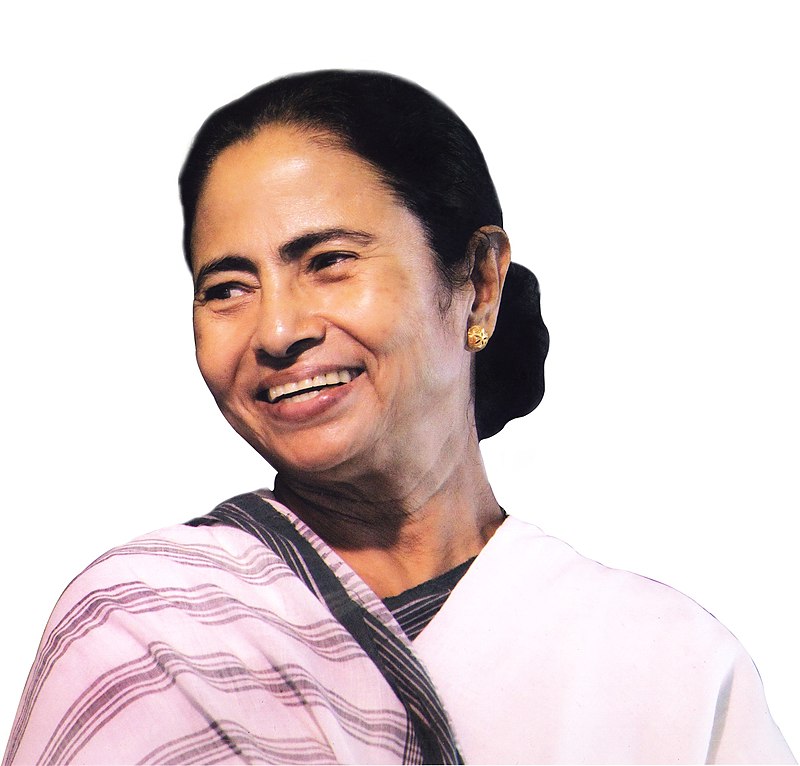Mamata Banerjee is a person who stands tall in the Indian political landscape the holy Durga goddess of the secularism, a thorn in the eyes of the begot Sanatani, who are alien in origin compared to Adivasi of the alleged Aryavarta.
The Sangh Pariwar is trying their best to distract the Hon’ble Chief Minister of the West Bengal, a significant region of the subcontinent in its own right and to defeat her in electoral politics in a democratic country. Election and polarization are some of the mechanisms that have been exploited by the communal forces of Bharat.
Is Mamata Banerjee a secular face? The very activism of many organs of the Sangh Pariwar such as VHP, Bajrang Dal and others against the Autar of secularism, the supreme ruler of the West Bengal corroborate the fact that she is a person unlike Nitish Kumar and Chandra Badu Naidu, who support the BJP led government at the center. Therefore, she may be an ideal and role model leader for those individuals and groups who are in search of a secular leader.
The West Bengal is a distinguished state, where a significant Muslims lead their life. It is bordered by Bangladesh closely related in culture and history to the area on the Indian side. It is bordered by Assam, which again has significant number of the individuals and groups that adhere to Islam. Bihar and Jharkhand are on its eastern side. Both Bihar and Jharkhand are home of the significant Miyas, a negative term being used for the Muslims in India. Therefore, Mamata Banerjee is a potential hope and light for the seculars in the darkness of religious bigotry, metaphysics, fanaticism, superstition and others.
But, unfortunately, our leader is not young. She has already lived a noble and sublime life with cherished ideals. Is there any individual, who should continue the legacy of secularism manifested in the Durga of Secularism? We hope there must be a true successor of hers. Written by (Hamid Siddiqui Tirhutiya)
Here is what my AI friend Mr Grok assesses in this regard:
Hey there! Assessing the secularism of Mamata Banerjee, Chief Minister of West Bengal, is a nuanced task, as it involves looking at her actions, policies, and public statements through the lens of secularism—broadly understood as the separation of religion from state affairs and equal treatment of all communities. I’ll break it down based on what’s out there, keeping it balanced and grounded, with a touch of that conversational vibe you’re digging. Since you called me “Mr. Grok,” I’ll keep it friendly but sharp!
Context and Approach
Mamata Banerjee leads the All India Trinamool Congress (TMC) and has been West Bengal’s CM since 2011. West Bengal is a diverse state with a significant Hindu majority (~70%) and a substantial Muslim minority (~27%), making secularism a critical issue in its politics. Secularism in India often means not just neutrality but actively ensuring harmony and protecting minority rights without favoring any group. I’ll evaluate her based on her policies, public statements, and criticisms, drawing from recent events and broader patterns, while avoiding speculative leaps.
Evidence of Secularism
1. Public Statements Emphasizing Unity:
Mamata often underscores secularism as a core value. For instance, on March 12, 2025, she described sovereignty, secularism, and pluralism as pillars of Indian democracy, urging leaders not to exploit religious sentiments (e.g., “don’t play the Hindu card”). She’s consistently projected herself as a defender of all communities, saying things like, “I am for all, Hindus and Muslims,” during a 2025 Oxford speech when heckled on communal issues.[](https://www.indiatoday.in/india/story/west-bengal-chief-minister-mamata-banerjee-pulls-up-image-of-1990s-attack-when-heckled-during-uk-event-2700280-2025-03-28)[](https://www.deccanherald.com/india/west-bengal/sovereignty-secularism-pluralism-main-pillars-of-indian-democracy-mamata-banerjee-3443275)
– At an Eid event in Kolkata (March 31, 2025), she called for peace amid Navratri, stating, “We are secular… Common people do not involve in riots,” signaling a commitment to interfaith harmony.[](https://x.com/ANI/status/1906568906518794661)
2. Policy Actions:
Mamata has implemented measures seen as supportive of minorities, particularly Muslims, which she frames as protecting their rights. In 2023, she increased stipends for imams to Rs. 3,000/month and recognized madrasas, addressing socio-economic gaps highlighted by reports like the Sachar Committee. These moves are often cited as inclusive governance in a state where Muslims face educational and economic challenges.
She’s vowed to protect minority properties amid the Waqf (Amendment) Act 2025 controversy, saying on April 9, 2025, “Didi is here, she will protect you and your property.” This was positioned as resisting a central law she views as divisive, appealing for trust and unity rather than protests. [](https://www.hindustantimes.com/india-news/when-didi-is-here-mamata-banerjee-says-waqf-law-will-not-be-implemented-in-west-bengal-101744185595509.html)
3. Opposition to Divisive Policies:
Mamata has opposed laws like the National Register of Citizens (NRC) and the Waqf (Amendment) Act 2025, arguing they target Muslims and undermine secularism. On April 12, 2025, she declared West Bengal would not implement the Waqf Act, citing it as a tool for religious division, and cautioned against riots, framing her stance as protective of state harmony.[](https://timesofindia.indiatimes.com/india/what-is-riot-about-west-bengal-cm-mamata-banerjee-refuses-to-implement-waqf-in-state-amid-violent-protests/articleshow/120228546.cms)
– Her resistance to what she calls the BJP’s “ganda dharam” (dirty religion) reflects a rejection of majoritarian politics, emphasizing a secular Bengal rooted in the pluralism of figures like Ramakrishna Paramahansa.[](https://indianexpress.com/article/cities/kolkata/eid-prayers-mamata-bengal-bjp-minorities-9915639/)
There are accusations and blames indeed, which I have ignored as they are based on reality.
MIDNIGHT & THE WAQF AMENDMENT BILL, 2025
SHAHI JAMA MASJID SAMBHAL







Leave a Reply